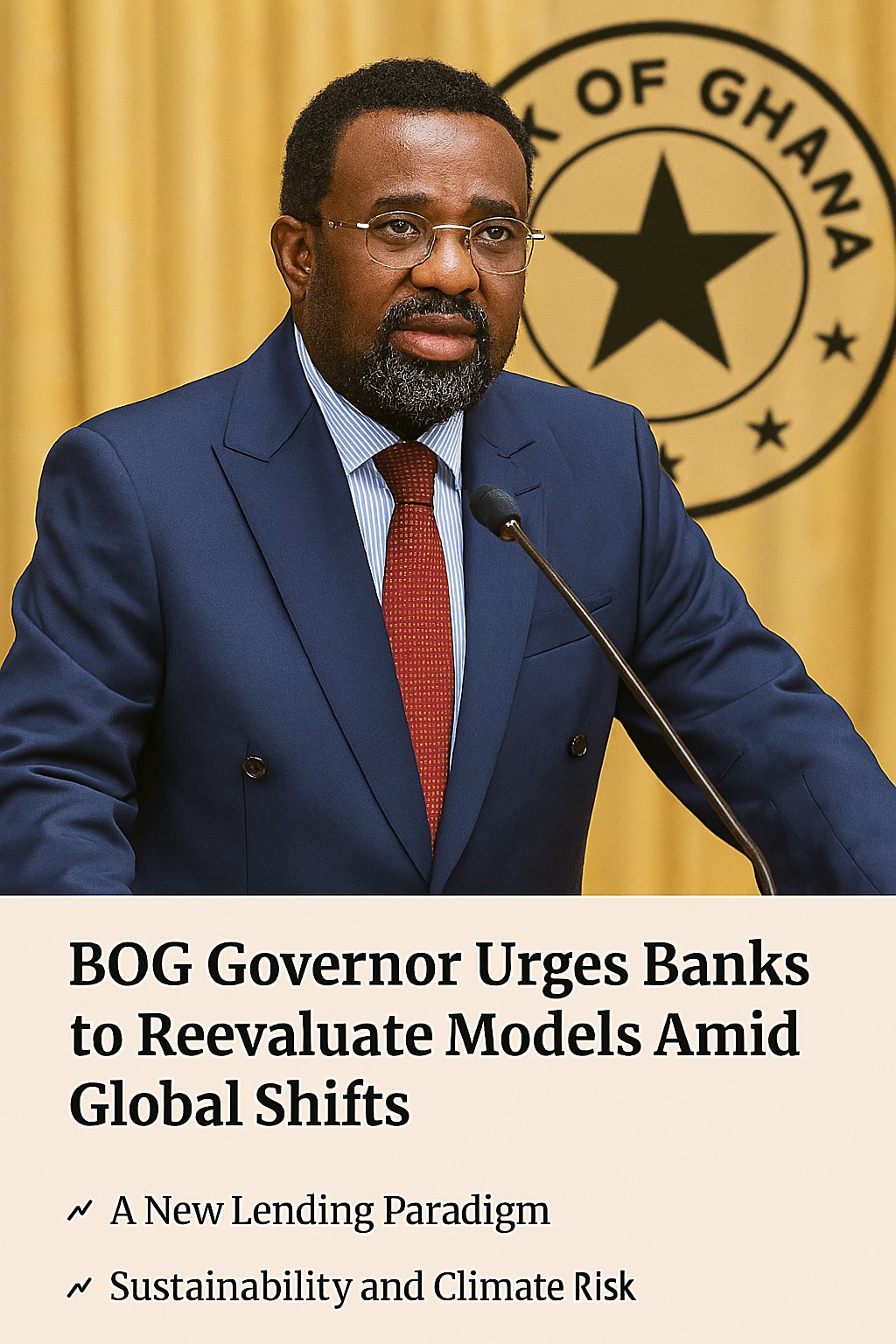BoG Governor Urges Banks to Reevaluate Models Amid Global Shifts

In a bold call for transformation, the Governor of the Bank of Ghana (BoG), Dr. Johnson Asiama, has urged commercial banks to urgently reassess their business models to align with Ghana’s evolving macroeconomic landscape. Speaking at multiple high-level engagements—including the Chartered Institute of Bankers (CIB) post-MPC roundtable and the inauguration of the BoG Chair in Economics and Finance at the University of Ghana—Dr. Asiama emphasized that the era of high interest rates and passive investment in government securities is no longer sustainable.
📉 A New Lending Paradigm
The central bank’s recent 300-basis-point cut in the policy rate signals a strategic pivot toward affordable credit and inclusive growth. Ghana’s lending rates, which have hovered around 27.4%, are now expected to trend toward single digits within the next four years. Dr. Asiama challenged banks to prepare for lending below 10%, urging them to shift focus from treasury bills to productive sectors such as agriculture, manufacturing, and green finance.
“The financial sector must be the bridge—not the bottleneck—to economic transformation,” Dr. Asiama declared.
🌱 Sustainability and Climate Risk
Beyond interest rates, the BoG is intensifying pressure on banks to integrate environmental, social, and governance (ESG) factors into their credit decisions. Second Deputy Governor Matilda Asante-Asiedu highlighted the construction sector as a high-risk area where climate-related disruptions could undermine financial stability. The BoG’s Climate-Related Financial Risk Directive, effective January 2026, mandates that banks embed climate risk into their governance and risk management frameworks.
“We must move away from viewing ESG as a PR exercise. It is the framework for long-term resilience,” Asante-Asiedu stated.
📊 Data-Driven Decisions and Institutional Reform
The CIB’s recent study revealed that over 85% of banking stakeholders anticipated the rate cut and supported deeper alignment between monetary policy and economic growth. Industry leaders, including the Association of Ghana Industries (AGI) and the Ghana Union of Traders Association (GUTA), welcomed the shift, citing improved liquidity and declining prices of imported goods due to the cedi’s 42% appreciation year-to-date.
Dr. Asiama also announced plans for joint research initiatives with the University of Ghana, focusing on inflation targeting, digital finance, and monetary policy transmission. The BoG Chair will offer scholarships and internships to high-performing graduates, nurturing a new generation of financial leaders.
🏦 What’s Next for Ghana’s Banks?
As Ghana navigates global disruptions with a disciplined domestic policy, the central bank is positioning the financial sector as a catalyst for inclusive development. Banks are expected to:
-
Reallocate capital toward SMEs and green projects
-
Reduce reliance on high-yield BoG instruments
-
Strengthen credit infrastructure and risk management
-
Embrace ESG compliance and climate resilience
-
Support research and innovation in financial policy
✍️ Editorial Perspective
Dr. Asiama’s message is clear: Ghana’s financial institutions must evolve from passive profit centres into active engines of national development. With inflation falling, reserves rising, and policy rates dropping, the window for reform is wide open. The challenge now lies in execution. Will banks rise to the occasion?



0 Comments
No comments yet, be the first to comment